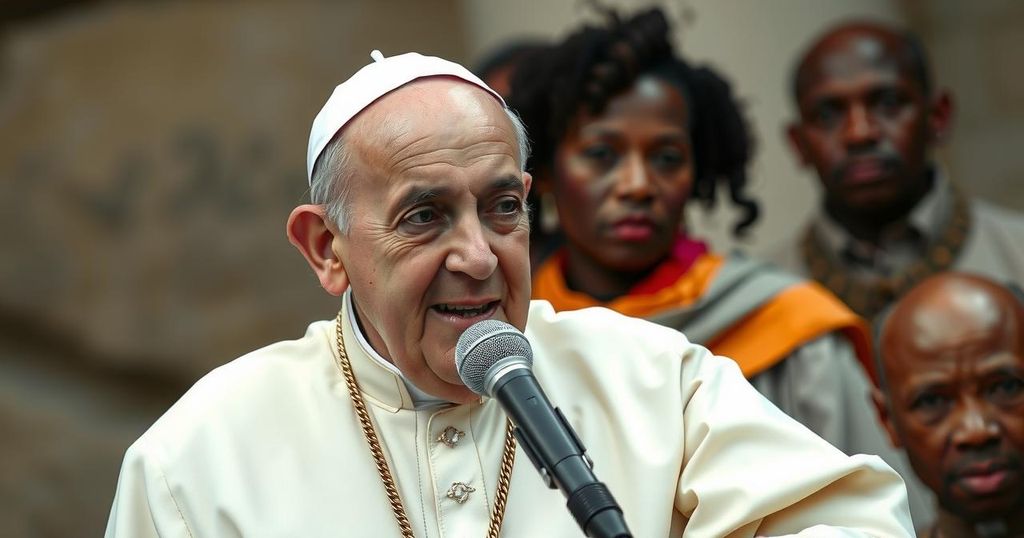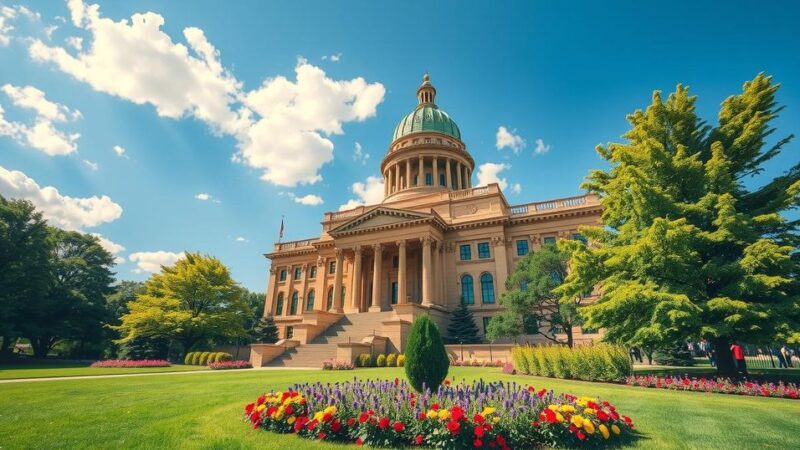During his visit to Papua New Guinea, Pope Francis called for the equitable distribution of the country’s vast natural resources, benefiting the entire community rather than a select few. He addressed the pressing issues of poverty and tribal violence, urging an end to conflicts that hinder peace and development. The Pope’s remarks resonate with local citizens who seek better governance and services from resource revenues.
Pope Francis visited Papua New Guinea on Saturday, emphasizing that the nation’s abundant natural resources should benefit all citizens. Speaking to political and business leaders, the pontiff recognized the country’s wealth in culture and resources but urged that the wealth generated from gold, copper, nickel, gas, and timber must serve the broader community rather than merely enriching a small elite. Despite being resource-rich, Papua New Guinea remains one of the Pacific’s poorest countries, with substantial portions of its population living in extreme poverty and lacking basic amenities like electricity.
The Pope highlighted that while external experts and multinational companies are integral to resource management, local communities must not be overlooked in the benefits derived from these resources. He noted that consideration for the needs of local populations is crucial when distributing profits and offering employment to improve living conditions. This message is expected to resonate strongly with the local Catholic community and many in other resource-abundant regions facing similar issues.
Moreover, the pontiff addressed the ongoing tribal violence in the country, expressing a desire for an end to the cycle of conflict that has caused significant casualties and displacement. He condemned this violence, attributing it to modern challenges such as population growth, joblessness, and economic stress rather than traditional customs. Despite government attempts to mediate the conflict, violence persists and is reportedly spreading to other regions. The Pope’s visit not only underscores the socio-economic issues in Papua New Guinea but also carries a wider message of hope and reconciliation for its citizens.
Papua New Guinea is home to vast natural resources, including gold, copper, nickel, gas, and timber. Despite these riches, the nation grapples with extreme poverty, with a significant part of its population lacking essential services. Furthermore, there is widespread perception among its citizens that the wealth generated from these resources primarily benefits foreign companies and a small elite, while local communities remain underserved. The country has also been marked by tribal violence, exacerbated by social and economic challenges, leading to calls for peace and reconciliation.
Pope Francis’s visit to Papua New Guinea highlights the critical issues surrounding the distribution of the nation’s natural wealth and the persistent violence affecting communities. His calls for community benefit from natural resources and the cessation of tribal conflicts reflect urgent socio-economic concerns. The Pope’s message emphasizes the importance of local needs in resource management and sets a hopeful tone for addressing deeper humanitarian issues affecting the citizens of Papua New Guinea.
Original Source: www.voanews.com






